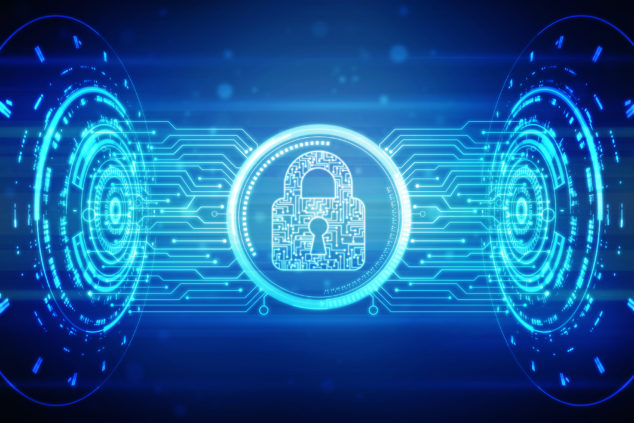Securing Your Digital Treasure: Common Security Threats and Safeguarding Your Bitcoin”
Introduction:
As Bitcoin continues to gain popularity and adoption, the need for understanding and practicing robust security measures becomes increasingly vital. Bitcoin, with its decentralized nature and cryptographic foundation, offers a level of security, but it is not immune to a variety of threats. In this article, we will explore the common security threats that Bitcoin holders face and provide actionable strategies to protect your digital wealth.
1. The Bitcoin Security Landscape:
Bitcoin, often referred to as “digital gold,” has attracted not only investors but also malicious actors seeking to exploit vulnerabilities. To safeguard your holdings, it is essential to be aware of the following common security threats:

2. Phishing Attacks:
Phishing attacks involve tricking individuals into revealing their private keys or personal information through fake websites or emails that impersonate legitimate services. To protect yourself from phishing:
- Always double-check URLs and email addresses.
- Use a hardware wallet for secure storage.
- Enable two-factor authentication (2FA) wherever possible.
3. Malware and Keyloggers:
Malware can infect your computer or device, including keyloggers that record keystrokes to capture passwords and private keys. Protect against malware:
- Use reputable antivirus software and keep it updated.
- Store your private keys securely offline.
- Be cautious when downloading files or clicking on links.
4. Ponzi Schemes and Scams:
Scammers often use schemes promising unrealistic returns on Bitcoin investments to deceive users into sending their cryptocurrency. Protect yourself by:
- Exercising caution and skepticism when encountering “get-rich-quick” schemes.
- Verifying the legitimacy of any investment opportunity.
- Avoiding offers that seem too good to be true.
5. Fake Wallets and Exchanges:
Fraudulent wallets and exchanges can deceive users into depositing their Bitcoin, only to disappear with their funds. To mitigate this risk:
- Only use well-known, reputable wallet services and exchanges.
- Verify the authenticity of a wallet or exchange before making any transactions.
- Consider using hardware wallets for added security.
6. Social Engineering Attacks:
Social engineering exploits human psychology to manipulate individuals into revealing sensitive information or performing actions against their best interests. Protect against social engineering:
- Educate yourself and your family about common tactics used by social engineers.
- Be cautious when receiving unsolicited communications requesting sensitive information.
7. SIM Swapping and Mobile Attacks:
SIM swapping involves attackers tricking a mobile carrier into transferring a victim’s phone number to a new SIM card under their control. To guard against this:
- Enable a PIN or passcode on your mobile account.
- Contact your mobile carrier to add extra layers of security to your account.
- Use hardware wallets instead of mobile wallets for long-term storage.
8. Lack of Backup and Recovery:
Failure to create adequate backups or implement a recovery plan can result in permanent loss of your Bitcoin in case of device failure or loss. To ensure you can recover your funds:
- Regularly back up your wallet and keep backups in a secure location.
- Follow best practices for wallet recovery, such as using mnemonic phrases.
9. Inadequate Password Security:
Weak or reused passwords can lead to unauthorized access to your accounts. Strengthen your password security:
- Use strong, unique passwords for each of your accounts.
- Employ a password manager to keep track of complex passwords.
- Consider using a hardware security key for two-factor authentication.
10. Public Wi-Fi Vulnerabilities:
Using public Wi-Fi networks can expose your data to potential eavesdropping and man-in-the-middle attacks. Protect yourself on public Wi-Fi:
- Use a virtual private network (VPN) for encrypted connections.
- Avoid accessing sensitive information or wallets when connected to unsecured networks.
11. Best Practices for Bitcoin Security:
Beyond understanding the threats, here are some practical steps to secure your Bitcoin holdings:
12. Use Hardware Wallets:
Hardware wallets, such as Ledger and Trezor, provide one of the most secure ways to store Bitcoin. They keep your private keys offline, away from potential online threats.
13. Enable Multi-Signature Wallets:
Multi-signature (multi-sig) wallets require multiple private keys to authorize a transaction. This adds an extra layer of security, especially for significant holdings.
14. Keep Software Updated:
Regularly update your wallet software, operating system, and antivirus programs to patch potential vulnerabilities.
15. Implement 2FA:
Enable two-factor authentication wherever possible. This adds an additional layer of security to your accounts.
16. Educate Yourself:
Stay informed about the latest security threats and best practices for safeguarding your Bitcoin. Knowledge is your best defense.
17. Diversify Your Storage:
Consider using multiple wallets and storage methods. Keep small amounts for daily transactions in a hot wallet while securing the majority in a hardware wallet or a secure offline storage option.
18. Cold Storage:
For long-term storage, consider using cold storage methods, such as paper wallets or hardware wallets stored in a secure location, to minimize exposure to online threats.
19. Backup Your Keys:
Create multiple backups of your private keys and store them in separate, secure locations. Make sure your loved ones can access them in case of an emergency.
20. Test Your Recovery Process:
Regularly test your wallet’s recovery process to ensure that you can access your funds if needed.
21. Be Skeptical:
Exercise caution and skepticism when dealing with unknown parties, unsolicited offers, and too-good-to-be-true investment opportunities.
Conclusion:
Securing your Bitcoin requires a combination of knowledge, proactive measures, and adherence to best practices. While Bitcoin offers unparalleled financial sovereignty, it also places the responsibility of security squarely on the holder. By staying informed about common security threats and taking the necessary precautions, you can enjoy the benefits of the digital currency revolution while keeping your digital treasure safe from malicious actors. Remember, the world of Bitcoin rewards the vigilant and the well-prepared.